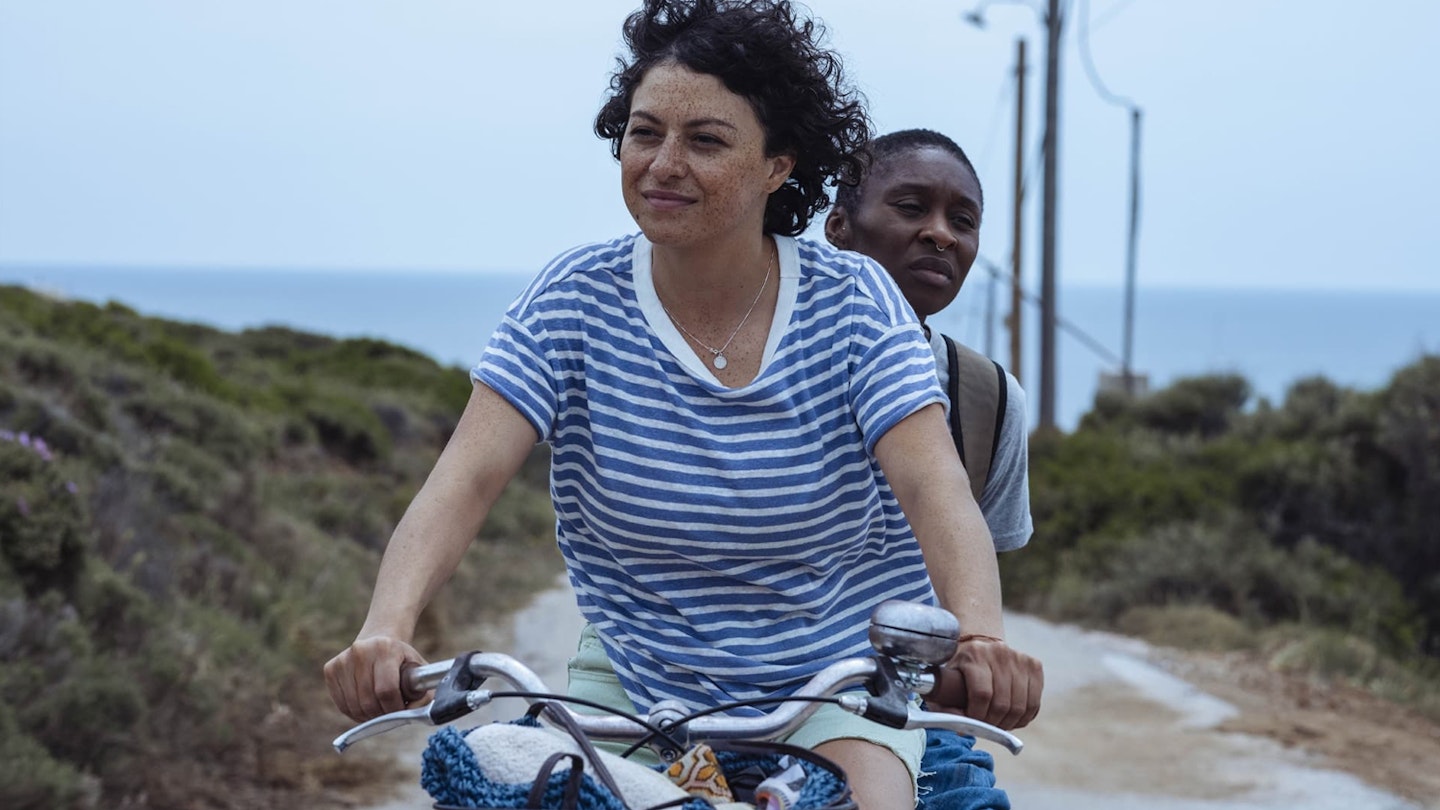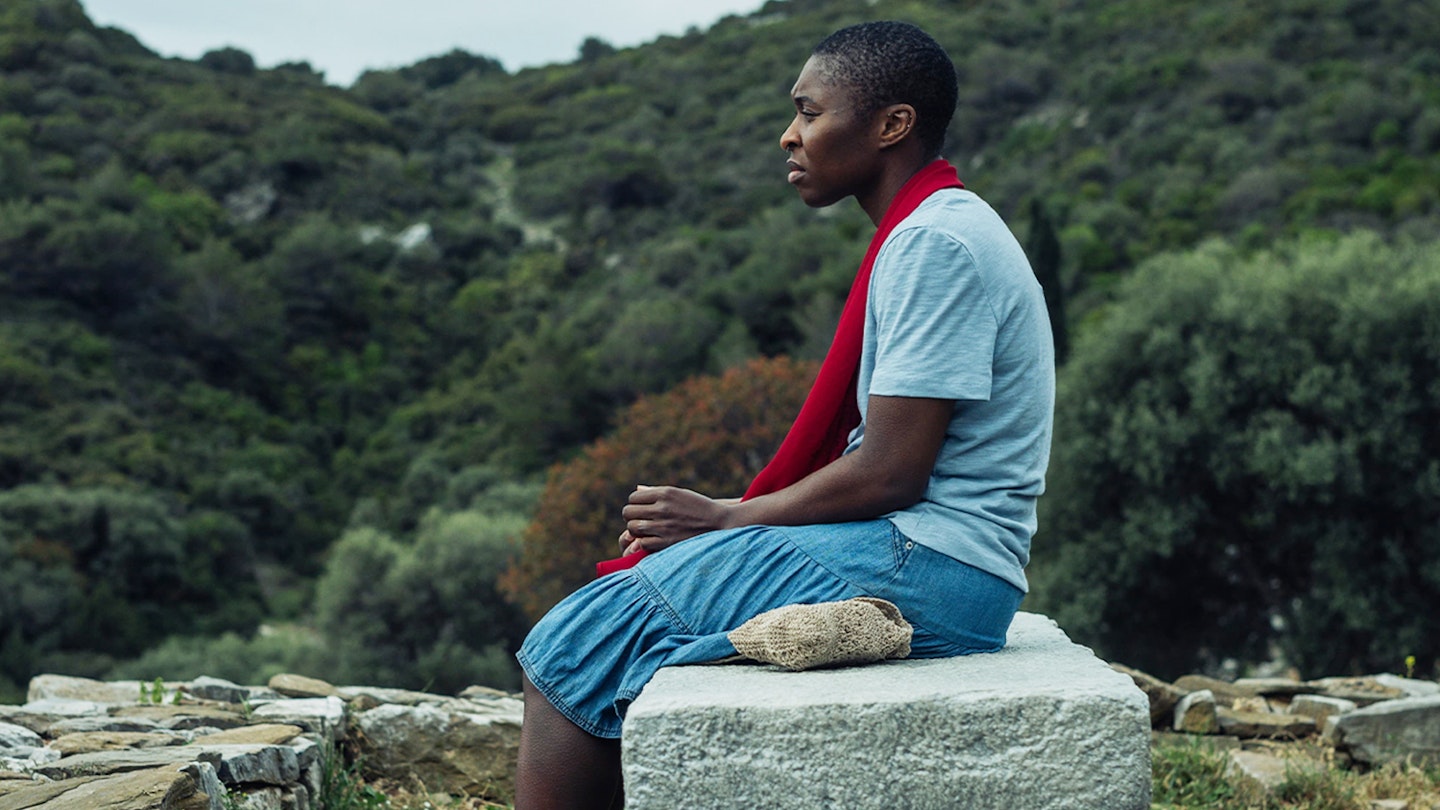A film where little is what it seems, Drift begins with water lapping at the shore of an idyllic beach, washing away footprints in the sand. Cut to Jacqueline (Cynthia Erivo), wandering, shell-shocked, amid the sweltering holidaymakers, a troubling, discomfiting figure, all too easy for the majority to ignore.

For Jacqueline is that most controversial of things, in our hardened world — a refugee. Living off packets of sugar filched from local taverna Zorba’s Castle, daily washing her one set of clothes, and making a home of sorts in a small cave a stone’s throw down the coast, sympathy is nonetheless compromised by assumption — yet in flashback we learn of Jacqueline’s previous (and seemingly recent) existence in the leafier suburbs of London, almost banal in its familiar beats, and her wealthy Liberian family background. When asked by a concerned tourist how she got to Greece, “Same as anyone,” she replies. “Plane, ferry… luck.” It’s a note of dry humour that sounds sporadically through the film, turning the lens of judgement.
Giving substance to this string of often delicate vignettes is Cynthia Erivo.
But this is a serious film. Directed by Anthony Chen, Drift is an elegiac piece of long silences, constantly wrong-footing the viewer, contrasting Mediterranean sunshine vistas with horrifyingly brutal memories of rape and murder back in Liberia, unthinkable acts of war committed by young boys jarringly adept with an automatic weapon. Amid all this, there is hope in the form of connection — Jacqueline tentatively accepting the friendship of American tour guide Callie (an engaging Alia Shawkat), herself somewhat adrift. The scenes they share are often warm and tender, but at times perplexing, even painful.
Giving substance to this string of often delicate vignettes is Cynthia Erivo (who also produces), in a captivating performance of quiet power and pride. Whether contending with everyday indignities or the most degrading of atrocities, Jacqueline’s self-respect never wavers, nor her ability to find joy in the small moments — witness an impromptu dance with a red scarf as the sun beats down. With minimal dialogue, Erivo communicates a myriad of emotions, fleshing out her character beyond the lines of Susanne Farrell and Alexander Maksik’s lyrical script. Daughter, sister, friend, lover, refugee — she is one and all, silently demanding that we do not turn away.
